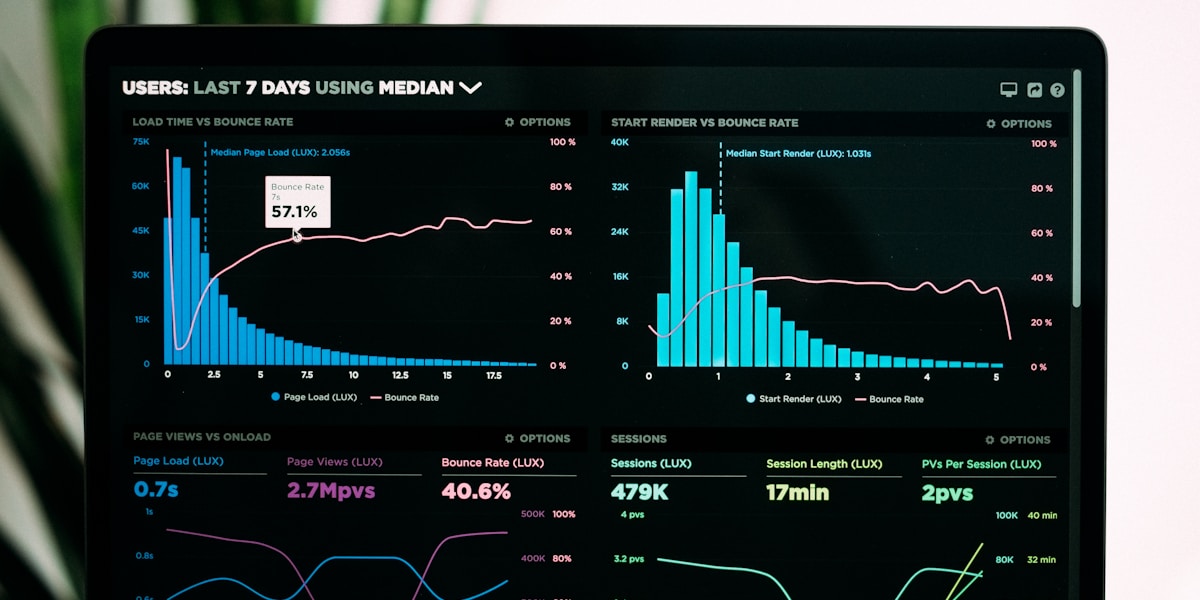
Real-Time Pricing Intelligence: A Game Changer for E-commerce
How real-time pricing data is transforming the e-commerce landscape.
Learn how leading companies use market intelligence to stay ahead of the competition, identify opportunities, and make data-driven strategic decisions that drive growth and success.

In today's hypercompetitive business landscape, having access to timely, accurate, and actionable market intelligence is no longer a luxury—it's a necessity. Companies that can effectively gather, analyze, and act on market data gain significant competitive advantages, from identifying emerging opportunities to anticipating market shifts before their competitors.
Market intelligence encompasses a broad range of data sources and analytical techniques, including competitor analysis, customer insights, market trends, pricing intelligence, and industry developments. When properly integrated into strategic decision-making processes, this intelligence can drive innovation, optimize operations, and create sustainable competitive advantages.
Understanding your competitors' strategies, strengths, weaknesses, and market positioning is crucial for developing effective competitive strategies. This includes monitoring their product launches, pricing changes, marketing campaigns, and market expansion efforts.
Advanced competitive intelligence goes beyond surface-level information to analyze competitors' business models, technology stacks, partnerships, and future strategic directions. This deeper understanding enables companies to anticipate competitive moves and position themselves advantageously.
Customer intelligence involves gathering and analyzing data about customer behavior, preferences, needs, and satisfaction levels. This includes both quantitative data (purchase patterns, usage statistics) and qualitative insights (feedback, reviews, social media sentiment).
Real-time customer intelligence enables companies to respond quickly to changing customer needs, identify new market segments, and develop products and services that better meet customer expectations.
Identifying and understanding market trends is essential for strategic planning and innovation. This includes technological trends, regulatory changes, economic indicators, and social/cultural shifts that could impact your business.
Early trend identification allows companies to adapt their strategies, develop new products, or enter new markets before competitors, creating first-mover advantages.
Market response time
Revenue growth
Customer retention
Effective market intelligence relies on diverse data sources and sophisticated collection methods. Here are the key sources and approaches:
Building an effective market intelligence system requires careful planning, the right technology infrastructure, and a culture that values data-driven decision making. Here's a framework for implementation:
Start by identifying the specific intelligence needs of your organization. What decisions do you need to make? What information gaps exist? What competitive threats or opportunities should you monitor? This will help determine the scope and focus of your intelligence efforts.
Implement automated data collection systems that can gather information from multiple sources continuously. This includes web scraping tools, API integrations, social media monitoring platforms, and data aggregation systems that can handle large volumes of data efficiently.
Build analytical capabilities to process and interpret the collected data. This includes data cleaning, pattern recognition, trend analysis, and predictive modeling. Consider using AI and machine learning to automate analysis and identify insights that might be missed by manual review.
Develop systems to distribute intelligence to the right people at the right time. This might include dashboards, automated reports, alerts, and regular intelligence briefings. The goal is to ensure that decision makers have access to relevant, timely information when they need it.
Many leading companies have successfully implemented market intelligence systems that have delivered significant competitive advantages:
A major e-commerce company implemented real-time pricing intelligence that monitors competitor prices across thousands of products. The system automatically adjusts pricing strategies based on competitive movements, resulting in a 15% increase in market share and 25% improvement in profit margins within six months.
A fintech startup used comprehensive market intelligence to identify underserved market segments and optimize their product launch strategy. By understanding customer needs, competitive gaps, and market timing, they achieved 300% faster market penetration compared to industry averages.
A global manufacturer implemented supply chain intelligence to monitor supplier performance, market conditions, and potential disruptions. This enabled them to proactively adjust their supply chain strategy, reducing costs by 20% and improving delivery reliability by 35%.
While market intelligence offers significant benefits, organizations face several challenges in implementation:
Ensuring data quality and reliability is crucial for effective market intelligence. Implement data validation processes, use multiple sources for verification, and establish clear data governance policies to maintain accuracy and consistency.
The volume of available data can be overwhelming. Focus on collecting only the most relevant information, use filtering and prioritization systems, and develop clear criteria for what constitutes actionable intelligence.
Market intelligence is only valuable if it's integrated into decision-making processes. Establish clear workflows for how intelligence is used, train decision makers on interpreting and applying intelligence, and create feedback loops to improve intelligence quality over time.
As technology continues to advance, market intelligence is becoming more sophisticated and accessible. Future developments include:
Market intelligence is not just about collecting data—it's about transforming that data into actionable insights that drive strategic decisions and create competitive advantages. Organizations that invest in robust market intelligence capabilities and integrate them effectively into their decision-making processes will be better positioned to succeed in an increasingly competitive and dynamic business environment.
Discover how Techy Data Lab's market intelligence solutions can help your organization stay ahead of the competition and make data-driven strategic decisions.
Continue exploring the world of data intelligence

How real-time pricing data is transforming the e-commerce landscape.

Discover how artificial intelligence is revolutionizing web scraping and data collection processes.

How sentiment analysis helps brands understand and improve customer perception.